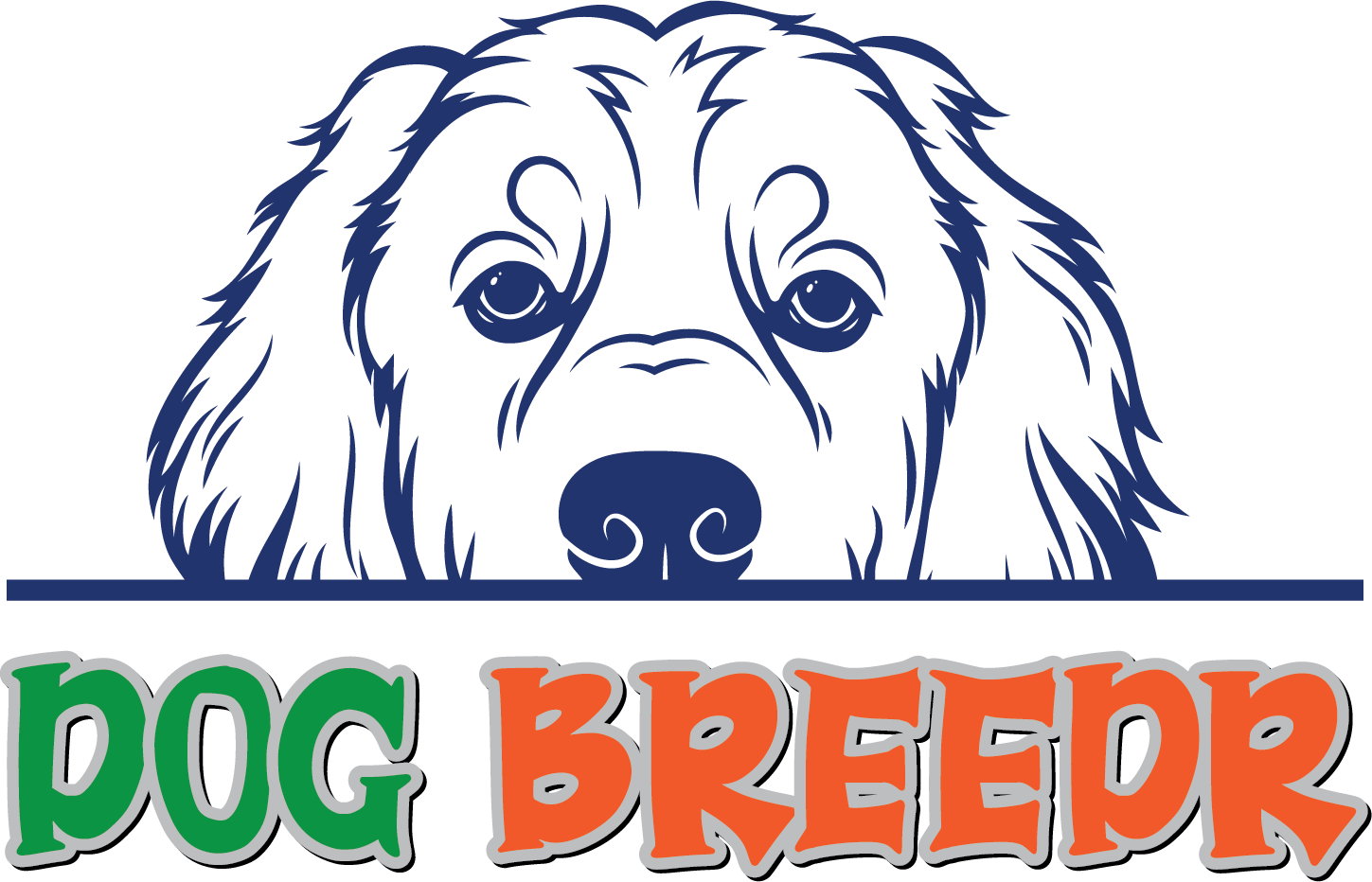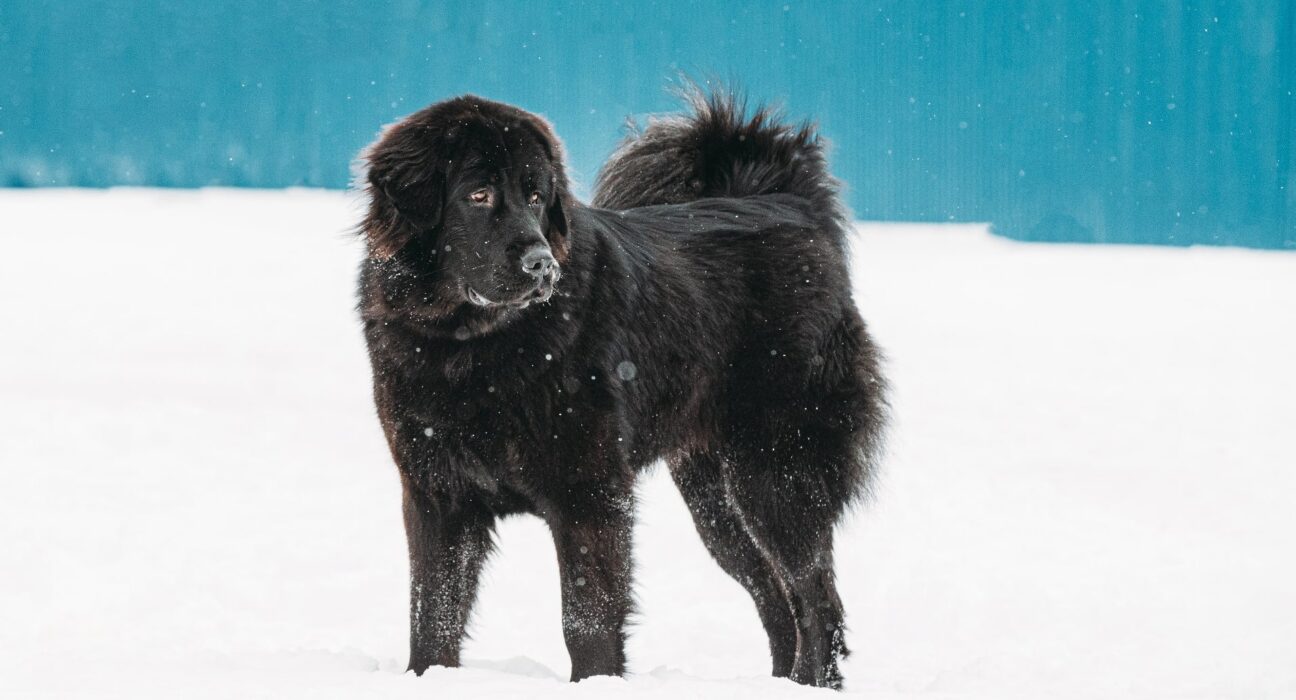Newfoundland dogs are large, strong, and loyal canines native to the Canadian province of Newfoundland.
They are often called “Gentle Giants” due to their imposing size and kind nature. With a thick double fur coat, webbed feet, and powerful swimming abilities, Newfoundlands were bred for water rescue and working on fishing boats.
Along with being excellent family pets, they make great working dogs due to their intelligence, loyalty, and obedience.
Newfoundland History And Origin
The Newfoundland dog is believed to have originated from the island of Newfoundland off the east coast of Canada, where fishermen first bred them for their strength and power as working dogs in the early 1700s.
They were used to pull boats, carry gear, and rescue people who had fallen overboard. Eventually, they were introduced to other parts of the world and have since become popular family pets due to their gentle nature and loyalty.
Newfoundland Physical Appearance
The Newfoundland dog is an impressive breed that stands between 26-28 inches tall at the shoulder and weighs anywhere from 130-150 pounds when fully grown.
It has a deep chest with strong legs that give it the power to pull heavy loads over land and water. Its double-layered coat is typically brown, black, grey, or white and can be either straight or wavy. Additionally, its webbed feet allow it to swim easily in cold waters.
Newfoundlands Personality
Newfoundlands are known for their gentle demeanor and loyalty. They make wonderful family pets due to their calm nature around children
Despite being large dogs, they have a surprisingly low energy level and don’t require as much exercise as some other large breeds.
They are highly intelligent and have been used throughout history in various roles, such as carting goods over land or rescuing people from the sea.
Newfoundland Dog Health Requirements
The Newfoundland dog breed is known for its strong, muscular build and calm and gentle demeanor. While they may look intimidating, these dogs are generally friendly with people, especially children. However, this breed requires special care to maintain its health and well-being.
· Nutrition
One of the most important aspects of caring for a dog is proper nutrition. A healthy diet should include quality kibble or canned food formulated specifically for large-breed dogs.
Regularly scheduled meals throughout the day help keep your pup’s energy levels consistent and digestion running smoothly. Protein sources like fish or lamb can offer additional nutrition and variety in your pet’s diet.
· Physical Exercise
Physical exercise is also essential for maintaining good overall health in Newfoundlands. This breed is prone to joint problems and should be taken on regular walks and hikes, as well as swimming if available.
Swimming can be a great way to keep your pup fit because it uses many different muscles and provides an overall body workout.
Playing fetch or tug-of-war with a ball or rope toy can also help provide them with exercise while having fun.
· Mental Health
It’s not just the physical health that needs attention when caring for dogs – mental health is crucial too. Providing plenty of opportunities for interacting with people, other dogs, and stimulating environments will go a long way in keeping your pet happy and contented.
Training sessions should involve positive reinforcement and rewards like treats to reinforce good behavior.
· Grooming
Grooming is also necessary for a healthy Newfoundland. Weekly brushing helps keep their thick coats free of dirt and debris and promotes circulation in the skin.
Regular bathing using mild soap or shampoo should be done every three months. Additionally, trimming nails and cleaning ears regularly can prevent potential infections.
Overall, providing your Newfoundland with proper nutrition, exercise, activities, and grooming is essential for keeping them in optimum health throughout their lifespan. With proper care and attention, you can ensure that your pet remains happy and healthy for many years.
Are Newfoundlands Easy To Train?
Yes – Newfoundlands can be relatively easy to train.
Newfoundlands are incredibly intelligent dogs and eager to please their owners, which makes training them less of a challenge.
They are also known for being highly intuitive and able to pick up on cues from their environment quickly. This allows them to learn new commands and behaviors with relative ease.
They’re also usually more willing to work with their owners than other breeds, making the training process less frustrating.
When it comes to specific behaviors, Newfoundlands excel at obedience commands like sit, stay, come, heel, and drop.
They also respond well to crate training since they prefer having their own space in the home and often enjoy staying in their crate when not interacting with family members or going on walks/outings.
Additionally, because Newfoundlands generally love water so much, they’re more likely to catch onto swimming lessons quickly, which makes sense considering this breed was used as a working dog for fishermen in the past.
These dogs can also be trained for search and rescue operations or therapy services due to their intelligence and loving nature.
It’s important for owners of this breed to remember that while Newfoundlands can learn quickly, consistent reinforcement is key, especially if you’re teaching your pup something new or more advanced commands/behaviors.
Newfoundlands can be relatively easy dogs to train due to their intelligence and enthusiasm for pleasing people.
Training these beloved pups requires patience, consistency, and positive reinforcement but the result is well worth it.
With proper training, your Newfoundland will become an obedient companion who loves following commands just as much as they love spending time with you.
Lifespan Of Newfoundlands
Newfoundlands are a large, strong breed of dog that makes excellent companion animals. They can live anywhere between 8 and 10 years, with some dogs living even longer. The average lifespan of these lovable giants is around 10 years.
Newfoundlands love to spend time outdoors and need plenty of exercises to remain healthy and fit. An important factor in any animal’s lifespan is the amount of activity they get daily; regular physical activity will help keep them in shape and prevent health concerns such as obesity from occurring.
Adequate nutrition is also essential for keeping them healthy and happy for many years. Newfoundlands should be fed high-quality foods specifically designed for their size and breed, as this will provide them with all the necessary nutrients they need to stay healthy and fit.
Conclusion
The Newfoundland is an incredible breed used for centuries as both a working dog and a family pet. Its gentle nature, loyalty, and intelligence make it an ideal companion for those looking for a large and loving canine friend.
Despite its size, it doesn’t need much exercise or grooming, making it relatively low-maintenance compared to other breeds.
With all these qualities combined, this breed makes an excellent choice for anyone looking for their next furry companion.

